901444
TSPO1
Synonym(s):
Diphenyl[4-(triphenylsilyl)phenyl]phosphine oxide
Sign Into View Organizational & Contract Pricing
All Photos(1)
About This Item
Empirical Formula (Hill Notation):
C36H29OPSi
CAS Number:
Molecular Weight:
536.67
UNSPSC Code:
12352116
NACRES:
NA.23
Recommended Products
form
solid
Quality Level
Looking for similar products? Visit Product Comparison Guide
General description
TSPO1 is an electon transfer layer (ETL) or hole blocking layer (HBL) in OLED devices.
Application
TSPO1 is a phosphine oxide-based blocking and host material with triplet energy excitons. It is mainly used in the formation of a blocking layer that enhances the performance of organic electronic devices like organic light-emitting diodes (OLEDs), and delayed fluorescent devices.
Storage Class Code
11 - Combustible Solids
WGK
WGK 3
Flash Point(F)
Not applicable
Flash Point(C)
Not applicable
Certificates of Analysis (COA)
Search for Certificates of Analysis (COA) by entering the products Lot/Batch Number. Lot and Batch Numbers can be found on a product’s label following the words ‘Lot’ or ‘Batch’.
Already Own This Product?
Find documentation for the products that you have recently purchased in the Document Library.
High efficiency thermally activated delayed fluorescent devices using a mixed host of carbazole and phosphine oxide derived host materials
Kim OY, et al.
Synthetic Metals, 201(8), 49-53 (2015)
A novel pyrrolocarbazole donor for stable and highly efficient thermally activated delayed fluorescent emitters.
Kim J H, et al.
Dyes and Pigments, 136, 529-534 (2017)
Solution processed high efficiency blue and white phosphorescent organic light-emitting diodes using a high triplet energy exciton blocking layer
Yook KS and Lee JY
Organic Electronics, 12(8), 1293-1297 (2011)
Charge transport, carrier balance, and blue electrophosphorescence in diphenyl [4-(triphenylsilyl) phenyl] phosphine oxide devices
Mamada M, et al.
Applied Physics Letters, 98(7), 34-34 (2011)
Jaesang Lee et al.
Nature materials, 15(1), 92-98 (2015-10-20)
The combination of both very high brightness and deep blue emission from phosphorescent organic light-emitting diodes (PHOLED) is required for both display and lighting applications, yet so far has not been reported. A source of this difficulty is the absence
Our team of scientists has experience in all areas of research including Life Science, Material Science, Chemical Synthesis, Chromatography, Analytical and many others.
Contact Technical Service
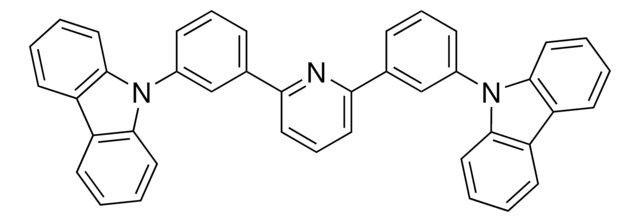

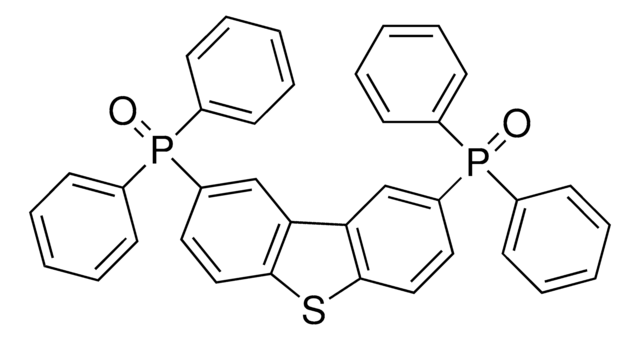
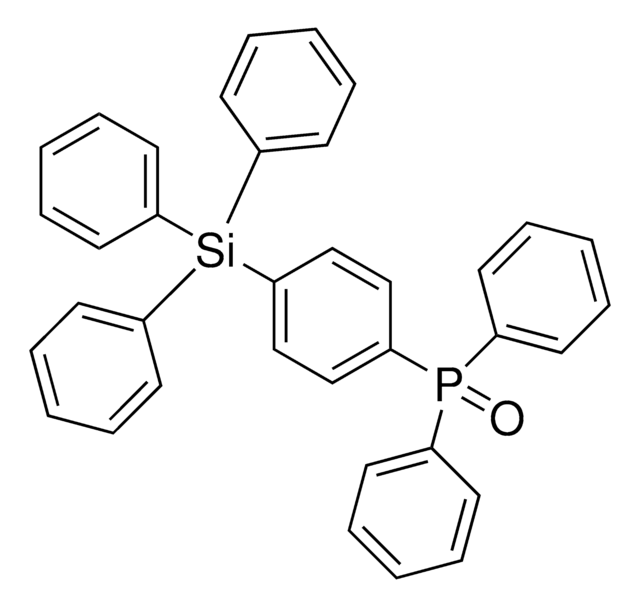
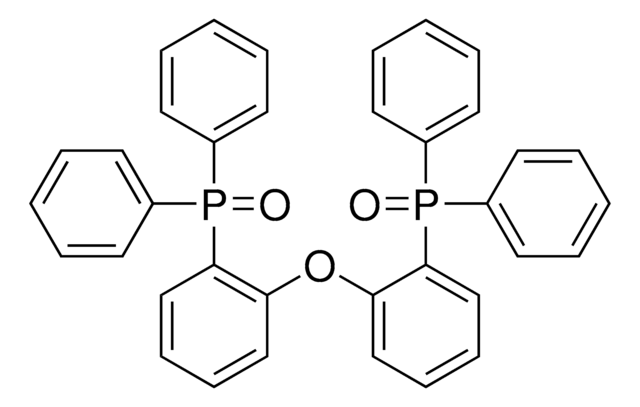
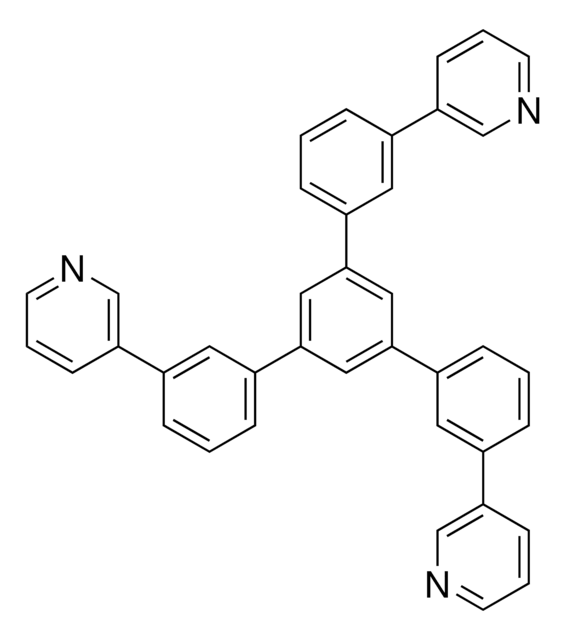

![Pyrazino[2,3-f][1,10]phenanthroline 99% (HPLC)](/deepweb/assets/sigmaaldrich/product/structures/226/341/31d3909e-6700-4a3e-bfb3-9ed1f6b66ee2/640/31d3909e-6700-4a3e-bfb3-9ed1f6b66ee2.png)
